Does Europe Need the Draft?
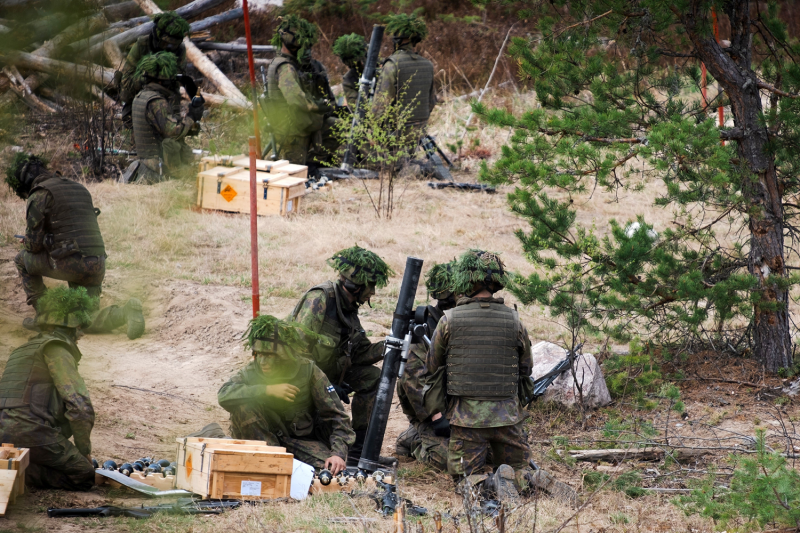
Does Europe Need the Draft?
Trump and Putin are causing a rethink over conscription policies.
Finnish conscripts take part in military training at a firing range in Vekaranjarvi, north of Kaapala, Finland, on May 19, 2022. Alessandro Rampazzo/AFP via Getty Images
Europe’s place in the Western order has rarely felt so precarious. Continental security is facing questions once unfathomable, as the trans-Atlantic alliance, with Donald Trump back in charge of the United States, looks shakier than at any point since the end of the Cold War.
That has made a once-dead issue live again: conscription. “For the first time since I have worked here, allies are talking about how this could work, how we lower barriers to jobs and best practices for recruitment, including conscription,” a senior NATO diplomat told me.
Europe’s place in the Western order has rarely felt so precarious. Continental security is facing questions once unfathomable, as the trans-Atlantic alliance, with Donald Trump back in charge of the United States, looks shakier than at any point since the end of the Cold War.
That has made a once-dead issue live again: conscription. “For the first time since I have worked here, allies are talking about how this could work, how we lower barriers to jobs and best practices for recruitment, including conscription,” a senior NATO diplomat told me.
Conscription was once the norm in almost all European nations. But over the course of the Cold War and its aftermath, it started to be downplayed in favor of smaller, professional armies. The United Kingdom took the lead when it abandoned National Service in 1960; many others, such as France and the Netherlands, ditched or radically altered their programs in the 1990s. Only a few states stuck to conscription, such as Finland and Switzerland.
Yet today Europe is surrounded by threats. Russia, though bogged down with its invasion of Ukraine, has ambitions to retake its former imperial holdings. The Middle East is in chaos. Old ideas are back on the table.
Trump’s open disdain for Europe hasn’t subsided. He is currently dangling the threat of a trade war over the continent while keeping NATO officials on their toes with his lukewarm commitment to the alliance.
Trump’s message to Europe is pretty straightforward: You need to be more grateful and start to look after yourself. For Europeans, the only palatable interpretation of this message is tough love. He hasn’t yet said “you’re on your own” as such. But the U.S. guarantee of European security is looking shakier than ever. And the best way to keep him on board, if it’s possible, is to become more self-sufficient.
“There have always been squabbles, and let’s be honest: Europeans have not taken their own defense seriously enough,” said Walter Landgraf, a senior fellow in the Foreign Policy Research Institute’s Eurasia program who served in the U.S. Army for 20 years.
“But before Trump there was no real prospect that America might abandon Europe or NATO. I sincerely fear that is no longer the case, unless Europeans demonstrate clearly that they are spending more and doing more. Conscription of troops is a visible way of doing that which Trump could clearly understand.”
To be clear, the possibility of conscription isn’t just a response to Trump. While the exact picture varies country to country, the broad view is that as things stand, the armed forces of European allies are not in a fit state to easily fend off an attack without U.S. support. Since the end of the Cold War, many countries have massively drawn down on defense spending, service personnel, and procurement of equipment.
Their security policies have also become wrapped up in other economic considerations, such as how hawkish they should be toward Russia and China, in the context of economic partnership or access to energy resources. NATO is, to some extent, only as strong as its weakest link, and some of those links have become extremely thin.
Here’s the paradox: Especially in Western Europe, a performative demonstration of power requires forcing young citizens to do dangerous jobs that don’t pay as well as the private sector and in many cases offer a relatively low quality of life. That might mean low pay, poor-quality housing, and limited prospects for your family, for example.
Conscription is not alien to Europeans or NATO. Some Nordic countries, such as Finland, Norway, and Denmark, retain some sort of conscription, as does the Baltic state of Estonia. Other allies have introduced temporary models since the invasion of Ukraine.
Worldwide, countries in favor of conscription are generally close to hostile powers, whether that’s Russia, China, or North Korea. Even there, the issue can be controversial: Taiwan began shrinking conscription in the 2000s, looking to transition to a professional army, before reintroducing yearlong service last year. In Europe, these states, such as Finland and Sweden, usually already match or come close to the 2 percent of GDP target for NATO allies to spend on defense. But they’re also smaller states, where that target is easier to hit.
Conscription is a much harder sell to countries that are relatively insulated from these threats. French President Emmanuel Macron, one of Europe’s loudest hawks, wanted to bring back compulsory national military service in 2018, but a lack of political support led to a watered-down voluntary scheme that some likened more to a “scout camp.”
But NATO is ready to push its members. Part of this drive comes in the form of capability targets: specific goals for each ally on what the alliance would need from them in a variety of scenarios—including a land invasion.
It might be possible to achieve those goals through a purely professional force. However, decades of complacency means that for countries such as Germany, the Netherlands, and even the relatively powerful forces of France and Britain, recruitment is a major challenge.
“My two cents would be that more European countries are going to have to look at conscription if they’re going to have any hope of meeting their targets,” said Hakon Lunde Saxi, a professor at the Norwegian Defence University College. “Obviously, this is an easier sell in regions that already have it, like Northern and Eastern Europe. The question is how you convince countries like Germany, who struggle to meet their spending targets already.”
Allies will need not just troops if they are to meet the next generation of challenges. “If we are buying more weapons systems, taking cyber and other hybrid forms of warfare more seriously, then we need people to do those jobs—and people to train them,” a senior European Union security official told me.
Some senior military figures in NATO allies are privately opposed to the idea of conscription, for fear it will end up a burden. Professional soldiers have often been skeptical of conscript armies, seeing them as poorly trained and ill-equipped.
NATO can’t tell its members what to do. But conversations among allies have started to take place about best practices should conscription happen—and how it might be made attractive to individual countries.
“In frontier states, it might be that we see homeland forces created, people who can be trained up to step in when railway crossings need monitoring by troops, for example,” said a senior European security source who has been involved in high-level conversations. “In the west, I wouldn’t be surprised if we saw a drive to expand reservist numbers. That might mean people with professional skills, like engineers, or technical expertise who can be trained up to carry out specific tasks at home. It might also mean more volunteers who can deal with national crises, like responses to flooding, and take the burden away from trained soldiers.”
Malcolm Chalmers, the deputy director-general of the Royal United Services Institute, said that for countries such as Britain, there could be a role for reservists in “protecting national infrastructure, preventing cyberattacks, backing up professional soldiers and other national services. There is room for creative thinking on homeland security.”
European nations are unlikely to admit it publicly, but it’s widely accepted that the United States takes a dim view of how Europe has allowed its defense to rely so heavily on the goodwill of Washington. A significant upscale is desperately needed and has been for a long time. However unpalatable some might find Trump’s condemnations of Europe, the reason his comments hurt so much is because, deep down, they know he’s right.
Luke McGee is an Emmy Award-winning journalist covering European diplomacy. He was previously CNN’s European policy editor.
More from Foreign Policy
-

Russian President Vladimir Putin looks on during a press conference after meeting with French President in Moscow, on February 7, 2022. The Domino Theory Is Coming for Putin
A series of setbacks for Russia is only gaining momentum.
-

The container ship Gunde Maersk sits docked at the Port of Oakland on June 24, 2024 in Oakland, California. How Denmark Can Hit Back Against Trump on Greenland
The White House is threatening a close ally with a trade war or worse—but Copenhagen has leverage that could inflict instant pain on the U.S. economy.
-

Donald Trump speaks during an event commemorating the 400th Anniversary of the First Representative Legislative Assembly in Jamestown, Virginia on July 30, 2019. This Could Be ‘Peak Trump’
His return to power has been impressive—but the hard work is about to begin.
-

US Secretary of State Marco Rubio greets employees at the State Department in Washington, DC, on January 21, 2025. The National Security Establishment Needs Working-Class Americans
President Trump has an opportunity to unleash underutilized talent in tackling dangers at home and abroad.

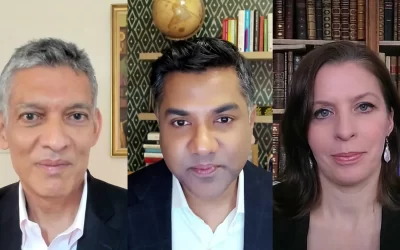
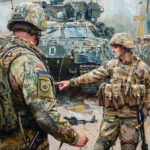

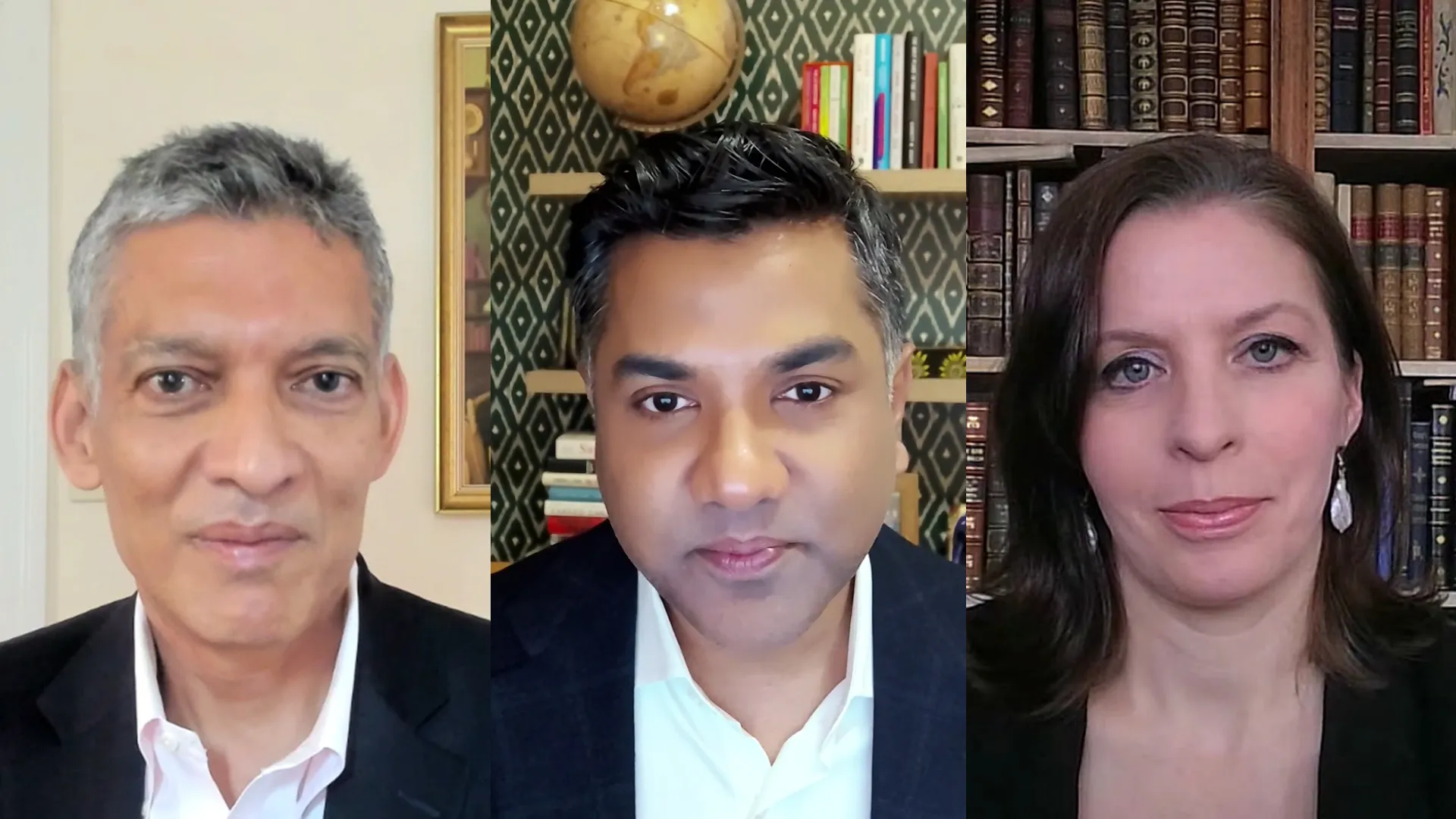


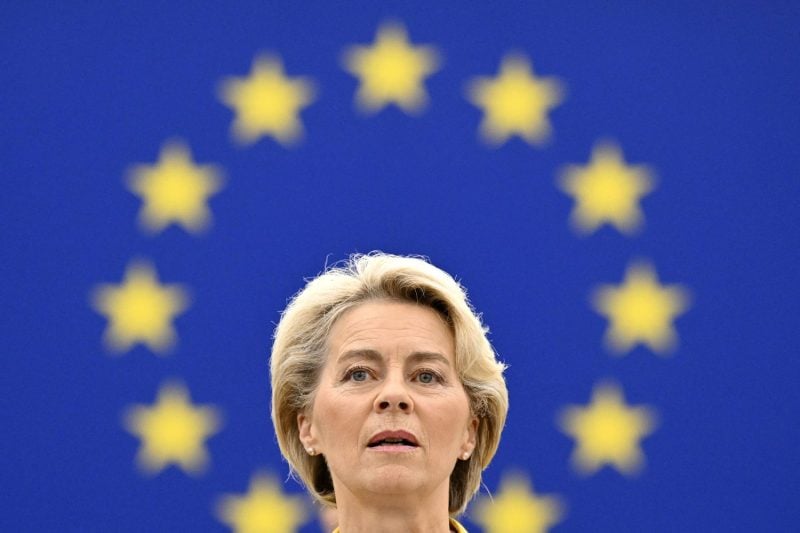
Join the Conversation
Commenting on this and other recent articles is just one benefit of a Foreign Policy subscription.
Already a subscriber?
.
Subscribe
Subscribe
View Comments
Join the Conversation
Join the conversation on this and other recent Foreign Policy articles when you subscribe now.
Subscribe
Subscribe
Not your account?
View Comments
Join the Conversation
Please follow our comment guidelines, stay on topic, and be civil, courteous, and respectful of others’ beliefs.
Change your username |
Log out
Change your username:
CANCEL
Confirm your username to get started.
The default username below has been generated using the first name and last initial on your FP subscriber account. Usernames may be updated at any time and must not contain inappropriate or offensive language.